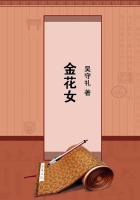Utterly indifferent to the welfare of the serfs and the ultimate fate of the property, they cut down the timber, sold the cattle, exacted heavy money dues under threats of giving the serfs or their children as recruits, presented to the military authorities a number of conscripts greater than was required by law--selling the conscription receipts (zatchetniya kvitantsii) to the merchants and burghers who were liable to the conscription but did not wish to serve--compelled some of the richer serfs to buy their liberty at an enormous price, and, in a word, used every means, legal and illegal, for extracting money. By this system of management they ruined the estate completely in the course of a few years; but by that time they had realised probably the whole sum paid, with a very fair profit from the operation; and this profit could be considerably augmented by selling a number of the peasant families for transportation to another estate (na svoz), or by mortgaging the property in the Opekunski Sovet--a Government institution which lent money on landed property without examining carefully the nature of the security.
As to the means which the proprietors possessed of oppressing their peasants, we must distinguish between the legal and the actual.
The legal were almost as complete as any one could desire. "The proprietor," it is said in the Laws (Vol. IX, p. 1045, ed. an.
1857), "may impose on his serfs every kind of labour, may take from them money dues (obrok) and demand from them personal service, with this one restriction, that they should not be thereby ruined, and that the number of days fixed by law should be left to them for their own work." Besides this, he had the right to transform peasants into domestic servants, and might, instead of employing them in his own service, hire them out to others who had the rights and privileges of Noblesse (pp. 1047-48). For all offences committed against himself or against any one under his jurisdiction he could subject the guilty ones to corporal punishment not exceeding forty lashes with the birch or fifteen blows with the stick (p. 1052); and if he considered any of his serfs as incorrigible, he could present them to the authorities to be drafted into the army or transported to Siberia as he might desire (pp. 1053-55). In cases of insubordination, where the ordinary domestic means of discipline did not suffice, he could call in the police and the military to support his authority.
I give here the references to the Code, because Russians commonly believe and assert that the hiring out of serfs, the infliction of corporal punishment, and similar practices were merely abuses unauthorised by law.
Such were the legal means by which the proprietor might oppress his peasants, and it will be readily understood that they were very considerable and very elastic. By law he had the power to impose any dues in labour or money which he might think fit, and in all cases the serfs were ordered to be docile and obedient (p. 1027).
Corporal punishment, though restricted by law, he could in reality apply to any extent. Certainly none of the serfs, and very few of the proprietors, were aware that the law placed any restriction on this right. All the proprietors were in the habit of using corporal punishment as they thought proper, and unless a proprietor became notorious for inhuman cruelty the authorities never thought of interfering. But in the eyes of the peasants corporal punishment was not the worst. What they feared infinitely more than the birch or the stick was the proprietor's power of giving them or their sons as recruits. The law assumed that this extreme means would be employed only against those serfs who showed themselves incorrigibly vicious or insubordinate; but the authorities accepted those presented without making any investigations, and consequently the proprietor might use this power as an effective means of extortion.
Against these means of extortion and oppression the serfs had no legal protection. The law provided them with no means of resisting any injustice to which they might be subjected, or of bringing to punishment the master who oppressed and ruined them. The Government, notwithstanding its sincere desire to protect them from inordinate burdens and cruel treatment, rarely interfered between the master and his serfs, being afraid of thereby undermining the authority of the proprietors, and awakening among the peasantry a spirit of insubordination. The serfs were left, therefore, to their own resources, and had to defend themselves as best they could. The simplest way was open mutiny; but this was rarely employed, for they knew by experience that any attempt of the kind would be at once put down by the military and mercilessly punished.
Much more favourite and efficient methods were passive resistance, flight, and fire-raising or murder.
We might naturally suppose that an unscrupulous proprietor, armed with the enormous legal and actual power which I have just described, could very easily extort from his peasants anything he desired. In reality, however, the process of extortion, when it exceeded a certain measure, was a very difficult operation. The Russian peasant has a capacity of patient endurance that would do honour to a martyr, and a power of continued, dogged, passive resistance such as is possessed, I believe, by no other class of men in Europe; and these qualities formed a very powerful barrier against the rapacity of unconscientious proprietors. As soon as the serfs remarked in their master a tendency to rapacity and extortion, they at once took measures to defend themselves. Their first step was to sell secretly the live stock they did not actually require, and all their movable property except the few articles necessary for everyday use; then the little capital realised was carefully hidden.















